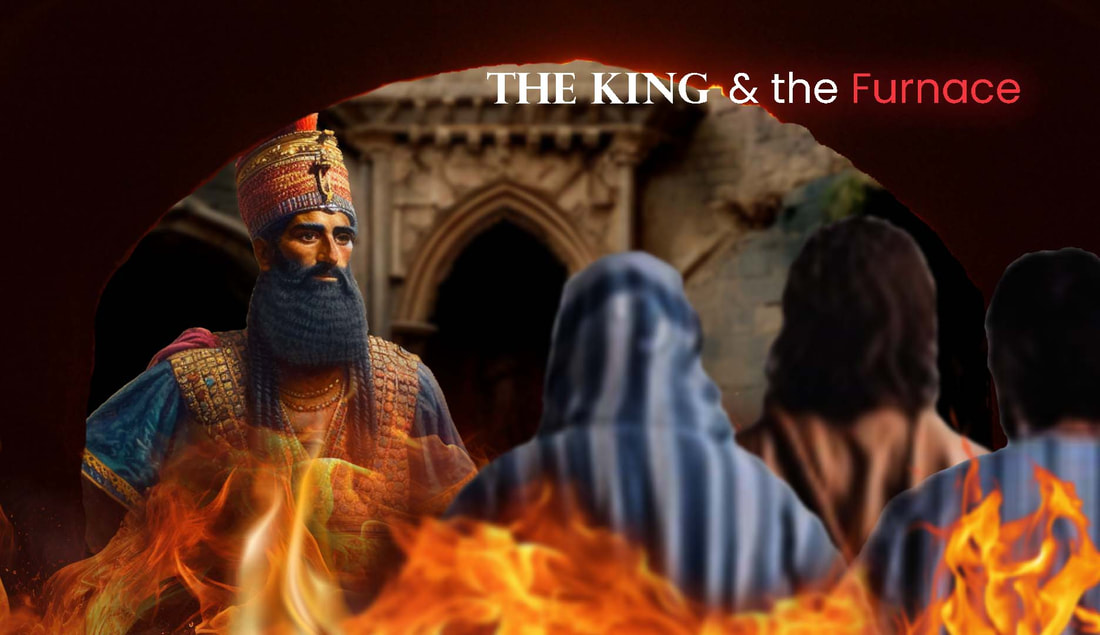|
A Tim Keller Sermon Summary During the 6th Century BC, Babylon was a great empire. After each conquest, they would exile professionals from the conquered land to Babylon to subjugate them through assimilation. After a generation or two, the exiles would lose their own culture and belief. Daniel’s three friends, the exiles, didn’t. Let’s see what happened (Daniel 3).
The Babylonian king decreed that whenever music was played, everyone must bow to a 90-foot-tall gold image he had built. Anyone who refused would be executed. The gold image had no name, symbolizing the king’s gods, representing his value in Babylon’s culture. In many pluralistic societies—ours included—citizens could keep their belief in private. But, in public, they are expected to worship the “gods” of the society, assimilating to public culture by forcing everyone to privatize their faith. For example, our business world is ruthless. To gold we bow. Haven’t Christians succumbed to the culture? Daniel’s three friends received Babylon’s education and worked in Babylon’s government. But when asked to privatize their faith, they insisted God could and would protect them, but even if God didn’t, they still wouldn’t worship the gold image (v. 17-18). In other words, they served God even if God didn’t follow their agenda. The furious king threw them into a blazing furnace, but God was with them and protected them (v. 25). Suffering is inevitable (Job 5:7). Fiery ordeal may not be abnormal (1 Peter 4:12). Even Christ, who lived a perfect life, suffered. Our suffering is more unbearable when we don’t understand why we suffer. If we believe bad things won’t happen to us because of our good work and effort, then when suffering hits, we either hate God, consider Him unfair, or hate ourselves for not good enough. Christians shouldn’t see suffering as God’s punishment. Christ already took our punishment; He suffered in the ultimate furnace and was crucified on the cross. Suffering can make us better, more like Christ. Suffering can help us understand who we are, improve our empathy, increase our wisdom about life, and strengthen our faith in God (1 Peter 1:7). If we are in a little furnace, we must trust that God is with us, just as God was with Daniel’s three friends in the blazing fire (Isaiah 43:1-3). There is no need to conform to the world. Accept suffering. Follow Christ. Summarized from a Tim Keller sermon: https://gospelinlife.com/downloads/the-king-and-the-furnace-6091/ 国王与熔炉 在公元前6世纪,巴比伦是个伟大的帝国。每次征服其它国家之后,它会将那里的专业人士流放到巴比伦,为要通过同化来征服这些人,希望流亡者在一两代之后失去原有的文化和信仰。 但以理的三个朋友是来自犹大的流亡者。他们却保持了自己的信仰。让我们看看发生了什么事 (但以理书3)。 巴比伦国王下令每个人在听到音乐时,都要崇拜他建造的90尺高的金像。任何违抗者都将被处决。这金像没有名字,象征着国王的众神,在王的眼中具有极高的价值 (14节)。 包括我们美国在内的多元化社会中,民众可以私下保持自己的信仰,但是在公众场合要敬拜社会的“神”。这样的社会不赞同每个人公开自己的信仰, 慢慢地同化民众去接纳它的“神”。 比方说,我们的商业世界是冷酷无情的拜金主义之处。基督徒是否已经屈从了这种世俗的文化呢? 但以理的三个朋友接受巴比伦的教育,服务于巴比伦政权。但是当国王命令只能私下持有他们的信仰时,这几个朋友告诉国王,上帝可以并且会保护他们; 但是即或不然,他们仍然不会崇拜金像(17-18节)。换句话说,即使上帝不照他们的心意而行,也要服事上帝! 愤怒的国王将他们扔进熊熊燃烧的熔炉,但上帝与他们同在,保护了他们(25节)。 受苦不可避免 (约伯记5:7)。火炼的试验也许并非不同寻常之事(彼得前书4:12),就是一生无暇无疵的基督也忍受了极大的苦难。 当不明白受苦的原因时,苦难临到就更加难以忍受。 如果相信因为自己好的行为和努力,坏的事情就不会发生,当苦难临到时,就会或者恨上帝,认为祂不公平,或者恨自己,觉得不够好。 基督徒不应该将苦难视为上帝的惩罚。基督已经担当了我们的刑罚, 在终极的熔炉中为世人受苦,为我们的罪被钉在十字架上。 苦难可以使我们变得更好,更像基督。它可以帮助我们明白自己是谁,增强同情心,增加生活的智慧和对上帝的信心(彼得壹书1:7; 4:12)。 如果今天我们身处在一个小熔炉中,必须相信全能的上帝与我们同在,就像祂与但以理的三个朋友在烈火中一样(以赛亚书43:1-3)。 我们不需要效法世界。让我们接受苦难,跟随基督!
0 Comments
Leave a Reply. |
Categories
All
|
Proudly powered by Weebly
